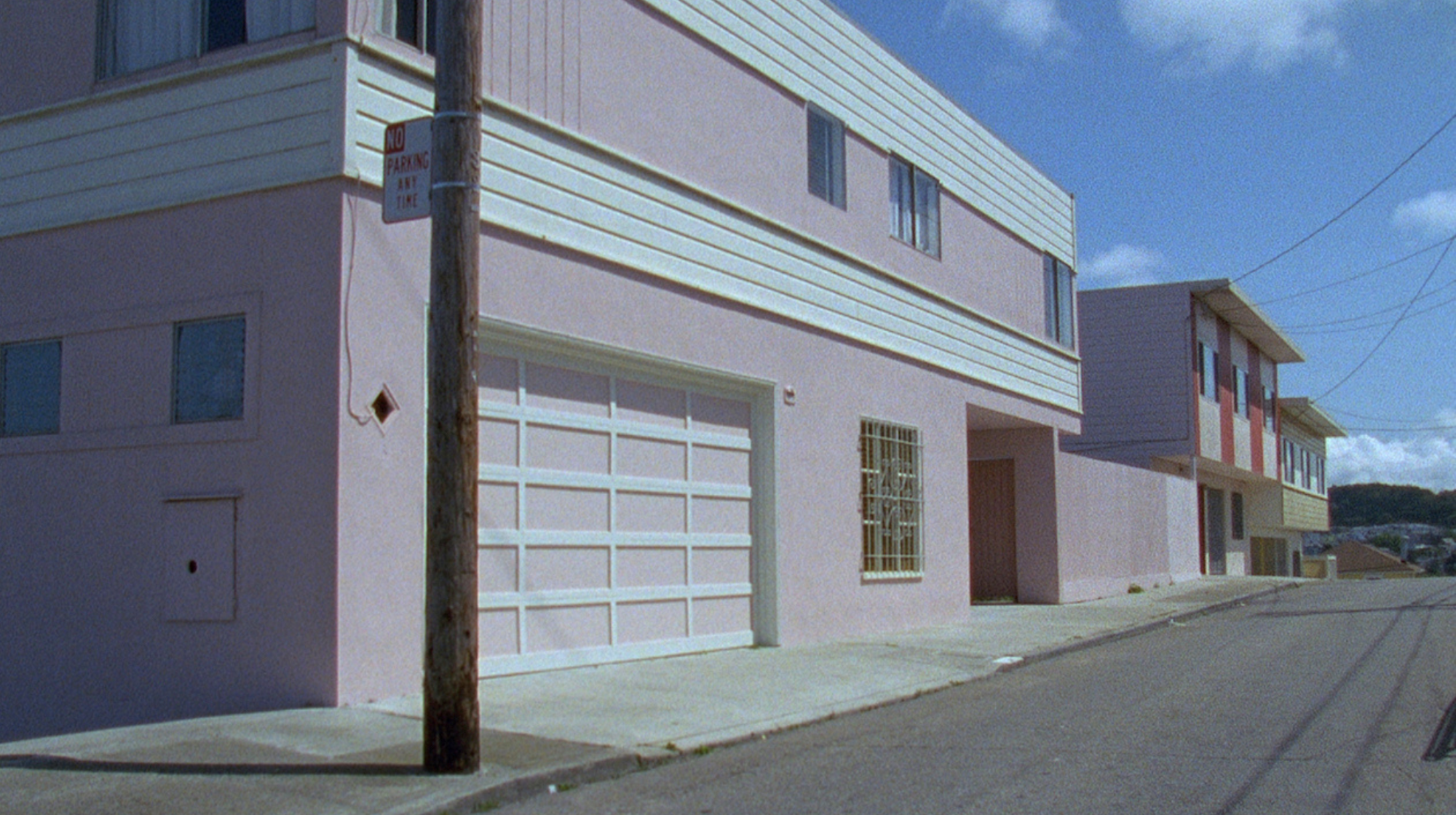Lyrical, digressive, and innovative in scope and form, Jenni Olson’s latest 16mm essay film portrays the urban landscapes of California and Minnesota as it unfolds an ambitious cinematic treatise (and asserts a Luddite Manifesto). In her wide-ranging voiceover soliloquy she reflects on growing up queer and gender non-conforming in Minnesota, prompting a diverse array of digressions ranging from Prince to George Floyd to the history of French colonial brutality visited on the indigenous peoples of the state — to her Scandinavian-Minnesotan alcoholic family (astutely pondering the question: “How does anyone survive this landscape?”) The Quiet World transcends the conventional categories of cinema.
Through mostly wide, static long takes Jenni Olson’s films present a portrait of the changing urban landscape as they achieve a poetic expansion of film form. This cinematic approach also creates an absolutely unique, emotionally resonant space in which her intimate reflective storytelling unfolds. A contemplative 16mm essay film, The Quiet World portrays the mundane urban landscapes of California and Minnesota as its lyrical voiceover takes on an eclectic array of topics, concerns, and themes. The Quiet World is especially about being queer and gender non-conforming — and about butch identity and experience. Even more important than these actual subjects, The Quiet World is about larger ideas. The film is interested in vulnerability as a path to self-acceptance; nostalgia as a key to lost wisdom and returning us to this moment; and storytelling itself as a mode of survival.
